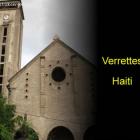ADVERTISEMENT
Banking - Haiti Observer Blog
Banking, Haiti Observer Blog. Read the following articles about Banking
Jean Baden Dubois, new BRH governor, replacing Charles Castel
President Michel Martelly just nominated Mr. Jean Baden Dubois to head Haiti Central Bank (BRH). He replaced Charles Castel. With over 25 years of experience in Haitian banking, Mr. Jean Baden Dubois is very respected in the financial field in Haiti. He has developed many strategies to improve services to the public and increase employee productivity. His special skills are in his capacity to identify needs and bring effective solutions.
Haitian Kreyol:
Jean Baden Dubois , nouvo gouvènè BRH, ranplase Charles Castel
Prezidan Michel Martelly jis nomine Mesye Jean Baden Dubois nan tèt Ayiti Central Bank (BRH). Li ranplase Charles Castel. Avèk plis pase 25 ane eksperyans nan bank ayisyen, Mesye Jean Baden Dubois se yon moun ki respekte nan zòn finansye an Ayiti. Li te devlope anpil estrateji ki te kapab amelyore sèvis pou piblik la ak ogmantasyon pwodiktivite sou kote anplwaye yo. Konpetans espesyal l 'yo se nan kapasite l' pou idantifye bezwen ak pote solisyon efikas.
Inauguration of Centre de Convention et de Documentation, BRH
On November 17, President Martelly was present at the first major construction in the historic district of Port-au-Prince to inaugurate the Convention and Documentation Centre of the Bank of the Republic of Haiti (BRH) located at the corner of Paved streets and Quai. It also gave him an opportunity to pay tribute to a monument 'Memorial Victory', dedicated to the 14 employees of the bank who died in the 2010 earthquake. The monument is the last work of the great Haitian sculptor Ludovic Booz. The building has been built at a cost of $14.5 million as per earthquake and para cyclonic norms. It consists an administrative area, a multi-purpose exhibition space (900 square meters), two control rooms for simultaneous translation, five office space on the rue Pavée, four meeting rooms, a lobby (380 square meters), a foyer (300 square meters), one documentation area, a restaurant with capacity for 125 people and an artists' dressing room for musical and theatrical performance. The Head of the State invited other institutions to follow the example of the BRH. The center has been built to facilitate the revival of the historical center of Port-au-Prince.
Goat, a form of Bank account for Haitian Peasant
It is a truth universally acknowledged, that certain farm animals moonlight as bank accounts for many a Haitian family. Traditionally, the Haitian pig was the account of choice, but nowadays, after the massive failure of multiple governments where that asset is concerned, the people of Haiti who rely on these animals for more than just sustenance, have turned to the new 'Haitian's Best Friend' as more than just a good source of protein.
Appreciating the value of the goat to a peasant's ability to live on more than just a hand-to-mouth income, the Lambi Fund had undertaken a project through which goats were donated to needy families through the Asosyasyon pou Pwoteksyon Anviwonnman Gwomòn (APEG). Through the efforts of the Lambi Fund group, 132 goats were given to the APEG along with other necessary supplies. They also provided training to the 160 members of the APEG, who then transferred their knowledge to the receivers as the beginning of a chain set to create the sustainability of the undertaking.
National Bank of Credit (BNC) launched new banking service, lajanCash
Haitian cell-phone users will now have access to online financial activities via an e-purse product, LajanCash. A French software developer, Tag Attitude, has developed the software that will permit users access to their bank accounts. They will have the ability to pay rent, bills, and groceries online. Tag Attitude is working with Central Bank to create policies for all online transactions.
LajanCash is the newest bank product offered by National Credit Bank (NCB), bringing it into the 21st century of information-technology banking. No matter what cell-phone brand the user owns, LajanCash can be used on it. The idea behind LajanCash is to move massive aggregations of users online to engage in commerce activities. This opportunity for consumers to join online banking communities will attract more choices to increase consumer satisfaction.
Bill Clinton at the head of an Agricultural Investment Delegation
Former US President Bill Clinton acts as the United Nation's special envoy to Haiti. His duties have taken him on two trips to the country so far this year. First, in January, he came for the 3-year anniversary of the devastating 2013 earthquake, which took place shortly after his tenure started. His latest visit, a two-day event that consisted of site visits and a donation announcement, on March 10 & 11 saw him accompanied by a nearly two-dozen strong delegation of potential investors from the restaurant, perfume and lingerie industries.
During his visit, he spoke about the controversies and misfortune faced by the country, but stressed that Haiti is still replete with 'staggering potential.' It's a sentiment also expressed by Haitian President Michel Martelly who's 'Haiti is open for business' slogan was designed with luring potential investors from around the world in mind. While they are optimistic about foreign investments being the key to rebuilding Haiti, analysts at home and abroad warn that the country's flawed justice system and its archaic banking practices don't instill confidence in investors. Further concerns are the advisories by the U.S. government that warn potential visitors about concerns of health, security and a lack of proper infrastructure.
Creole Pig, the bank account of the Haitian Peasant
There are many things that can be said that play on the Haitian peasant and the Creole pig, but there is true tragedy behind every punch line. In one of the government's single most devastating moves, done in the 1980's to placate the American's fear of a swine flu outbreak in the Dominican Republic contaminating their Pork industry, a nationwide slaughter of Creole pigs, noted to translate to 30% of the income of peasants, was undertaken.
Another serious misstep was the government's method of damage control. Seeing the devastation wrought on the livelihood of the peasant farmer, they attempted to replace what had been taken with American pigs from Iowa farmers. This too proved a failure, as the new breeds could not adapt to the inevitably harsher methods of farming, including but not limited to table scraps for food and no formal shelter.
Haiti mobile banking system
Mobile banking has played an important role in rebuilding after the earthquake. Called the 'mobile wallet' the Haiti Mobile Money Initiative (HMMI) got its jumpstart in June 2010. Though it was initially met with distrust by some who had trouble investing in a purely electronic system it soon caught on with the more than 85% of mobile users in Haiti after the temporary but immobilizing devastation of many traditional banks. Fast forward a few years and Haiti is leading in mobile phone payments in the region.
The mobile banking services include deposits, withdrawals, enumerated records of accounts and funds transfers all done over phone. And the statistics given from one service, TchoTcho Mobile, made available by Scotiabank, Digicel and YellowPepper show 6 million transactions for 2011 alone. Other mobile wallet providers show promising gains as well. Voila, through Mercy Corps, has served over 6,000 Haitians living in rural communities.
PromoCapital, Haiti's pioneer investment bank
PromoCapital, established in 2004, became Haiti's pioneer investment bank, the ancillary arm of PromoBank. PromoCapital set up its headquarters in Pétionville and opened affiliate offices in Washington, D.C., Aventura, Florida, and Port-au-Prince, Haiti. The investment bank began with 70 partners in a joint-venture effort born of an agreement signed by the Haitian-American Diaspora, Haitian small- and mid-size businesses, and investment capitalists. The Haitian and U.S. shareholders would share the equity between them equally.
PromoCapital is sub-divided into two financial entities, PromoCapital, S.A., set up as Société Fiancière de Dévelopment, in Haiti, and PromoCapital USA, Inc., a general partnership corporation licensed to operate in Delaware State. PromoCapital appointed two directors to represent its financial entities: Chairman Henri Deschamps of PromoCapital Haiti, and Dumarsais M. Siméus, Chairman of PromoCapital USA.
The History of Bank of the Republic of Haiti (Banque de la Republique d'Haiti)
The Bank of the Republic of Haiti (known in French as Banque de la République d'Haiti) (BRH) serves as the main bank of Haiti. As a participant in the Alliance for Financial Inclusion, it promotes its own proprietary financial inclusion initiative.
Soon after Haiti drove the French off the island, it reclaimed its status as a sovereign state. First mention of BRH occurred in a brief exchange of letters in September 1825. A German corporation, Hermann Hendrick and Co. (HHC), wanted to start a bank in newly-freed Haiti. They hired George Clark to draft a proposal, which was reviewed by Nicholas Kane, foreign liaison between HHC and Balthazar Inginac, Haiti Secretary of State. The proposal was rejected and Haiti's first bank would wait decades to become established.
Privately-Held Banque de l'Union Haitienne a Haiti Success Story
Banque de l'Union Haitienne (BUH), Haiti's first privately-held bank, with a full range of banking services, was established in 1973. Clifford Brandt, a Haitian corporate businessperson, partnered with Banco Popular Dominicano of the Dominican Republic (BPDDR) to create the bank. He and BPDDR's president, Alejandro Grullon, met to begin the process for launching Haiti's first private bank in 1973. With Grullon's approval, a pre-planning committee was set up to incorporate BPDDR's rules and regulations in order to be in conformance with its holding company.
In a meeting on June 2, 1973, 420 shareholders voted for the creation of BUH. Also at this gathering, it planned its regulatory structure, and selected a nine-member Board of Directors and a Controller.
Our objective is to share with you news and information about Haiti and the people of Haiti. Traditions, habits and the way we were or grew are alive in this site. We highly recommend that you Subscribe to our Newsletter and also share with us some of the things that are memorable and made us unique people.

 Verrettes, Haiti
Verrettes, Haiti  Haitian Creole Translation
Haitian Creole Translation  La Chapelle, Haiti
La Chapelle, Haiti  Informative Marketing and Advertising in the Haitian Community
Informative Marketing and Advertising in the Haitian Community  Life After Death
Life After Death